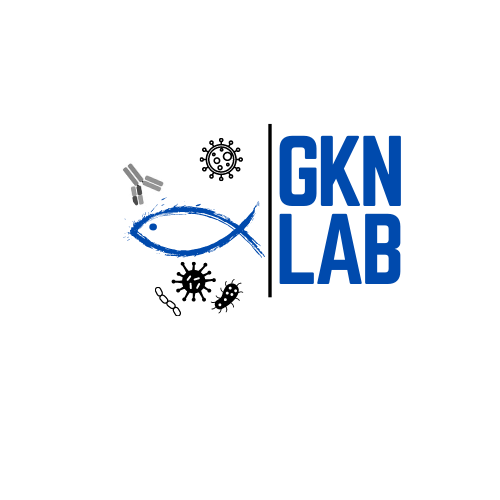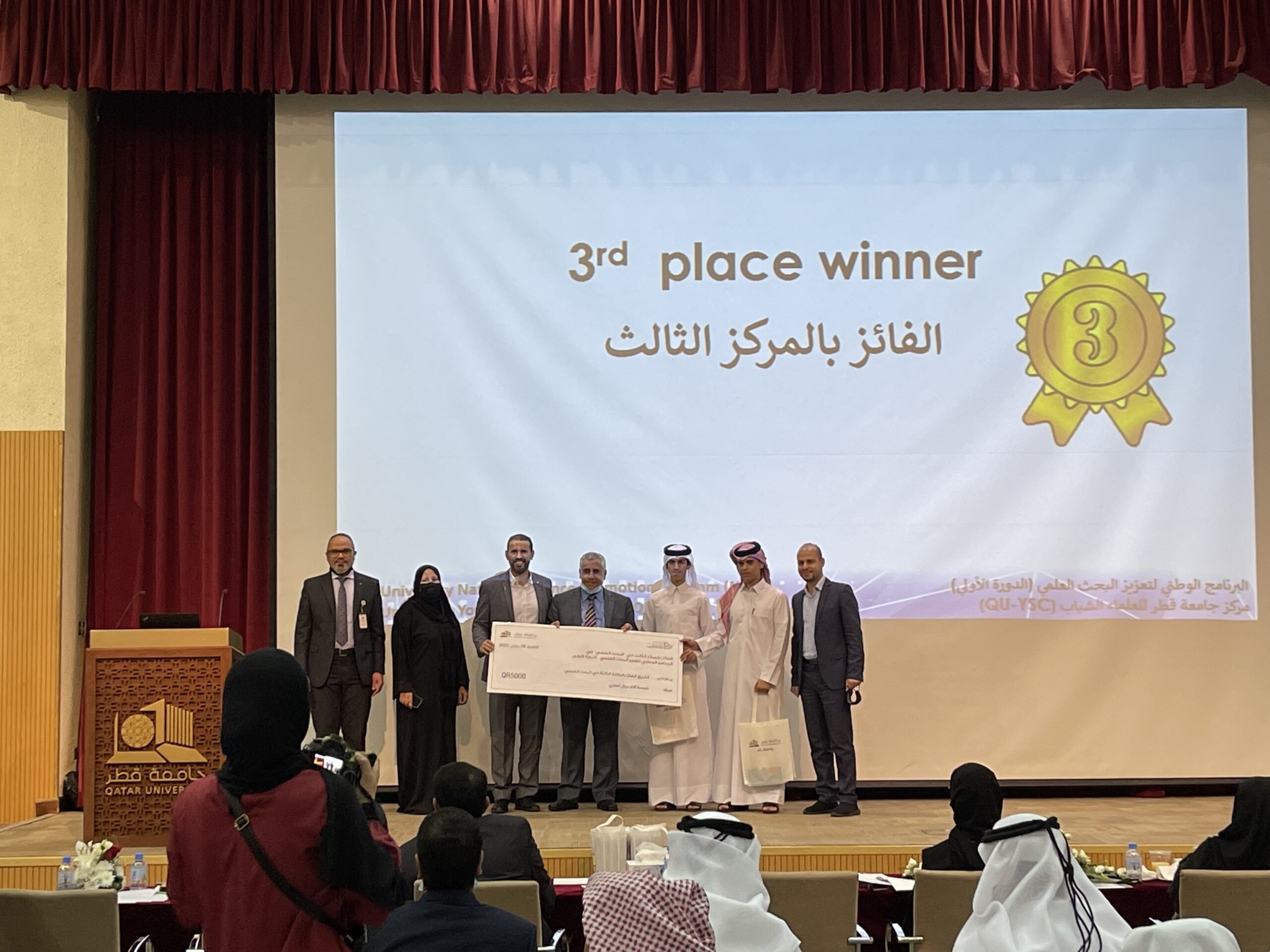Since all the inventions and discoveries were and are the product of the scientific research process, the importance lies in considering it as the building block of development, renaissance, and progress for all people.
Thus, all the nations provide great importance to scientific research, harness all their capabilities to help researchers, to overcome all the obstacles and difficulties faced by them, and to consolidate the culture of scientific research in the society, especially among the youth. This prompted the Qatar University Young Scientists Center, in cooperation with the Office of the Vice President for Research and Graduate Studies (VPRGS), to launch a research funding program titled “The National Science Promotion Program” (NSPP) in December 2020.
The winning projects of the research grants were announced on 6 June 2021. The program aims to build and consolidate the researcher’s identity among the youth of Qatar by involving them as researchers in research grant projects, and by allowing them in investing their minds and their creative energies in various research fields that fall under the national research vision in the state of Qatar.
All the winning research projects have gone through an audit and review process by a specialized committee of researchers to select the distinctive projects that confer great scientific benefit. The next stage will be the selection of high school students to participate in research. Schools will have to nominate two Qatari students from grades 10 or 11 to participate in one research project, and the admission will be on a first-come, first-served basis. The undergraduate students from the STEM colleges at Qatar University are selected to participate in the winning research projects, based on the evaluation of the participation letter and the supporting documents submitted by the students.
Since the launch of the National Science Promotion Program and the announcement of receiving research proposals in February 2021, many proposals have been submitted from various fields from colleges and research centers at Qatar University, including science, medicine, and engineering. All the proposals were reviewed, examined, and evaluated based on the specific criteria previously set by the program, which are: the importance of the topic for Qatar, the relevance of the research plan, the impact of the project, the plan for conducting the research and the provision of appropriate research criteria for the participating students. The selection process was carried out by a group of experts from various fields, including medicine, biomedical, pharmacy, science, and engineering.
These grants will enable students school and university students to conduct scientific research under the supervision of experts, researchers, and faculty members from the Qatar University, and will give them the necessary hands-on training in laboratories with high-tech equipment The student will have a unique experience that will help them refine their research, analytical and critical skills, as well as to continue their career in research.
The winning project proposals for the NSPP grant are “Toxicity evaluation of two surfactants with anti-corrosion properties on the embryonic development of zebrafish” by Dr. Gheyath K. Nasrallah; “The Effect of the Aryl hydrocarbon receptor Inhibition on the CTLA-4 Immune System in Colon Cancer Stem Cells” by Dr. Hesham M. Korashy; “Application of Carbon Quantum Dots (CQDs) and Ni-Co-S (NCS) – decorated nano sorbent for Wastewater Treatment” by Dr. Marwa El-Azazy; “SIRT1, a novel potential target that underpins CD44-promoted breast tumor cell invasion” by Prof. Allal Ouhtit; “Bio-sludge Atlas for Qatar: Characterization of bio-sludge from municipal and industrial sources” by Fares Almomani; and “Silver grafted Ti3C2-MXene Nanocomposite as Novel Anode Materials for Lithium-Ion-Batteries” by Abdul Shakoor.
Professor Noora Jabor Al-Thani, Director of the Qatar University Young Scientists center, expressed her pride in the program, saying, “National Science Promotion Program” has been developed to provide a valuable opportunity for Qatari youth to embark on a smooth and successful research experience that makes them the leaders of the development and progress of the country.” She added that the launch of such a research initiative is a product of the center’s long experience in preparing and developing various research programs, and this program, in particular, will be a factor in refining the scientific capabilities of Qatari youth. Prof. Noora thanked the program partners, which are UNESCO Doha Office and the Qatar National Commission for Education, Culture, and Science.

